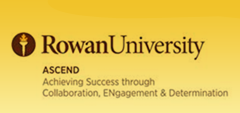TRIO Programs and Beyond: Integrating Student-Centric Programs and Strategies
Loading...
Start Date
15-2-2023 9:15 AM
End Date
15-2-2023 10:15 AM
Document Type
Presentation
Description
The Federal TRIO Programs are Federal outreach and student services programs designed to identify and provide services for individuals from disadvantaged backgrounds. TRIO Student Support Services (SSS) programs provide opportunities for academic development, assist students with basic college requirements, and motivate students toward the successful completion of their postsecondary education. Using a holistic approach to intrusive advising, SSS programs take participants from students to scholars to professionals, offering first-generation, income-eligible, and disabled students individualized pathways to success. This presentation explains the objectives of SSS programs, offering best practices that demonstrate how the program increases its cohorts' retention, academic standing, and graduation rates. Collaboration with student affairs and academic affairs become key. It then gives higher education institutions without TRIO programs strategies to include and/or strengthen proactive intervention for students who need it most--first-generation college students and underrepresented students of color or of lower socioeconomic status.
Copy of slides
TRIO Programs and Beyond: Integrating Student-Centric Programs and Strategies
The Federal TRIO Programs are Federal outreach and student services programs designed to identify and provide services for individuals from disadvantaged backgrounds. TRIO Student Support Services (SSS) programs provide opportunities for academic development, assist students with basic college requirements, and motivate students toward the successful completion of their postsecondary education. Using a holistic approach to intrusive advising, SSS programs take participants from students to scholars to professionals, offering first-generation, income-eligible, and disabled students individualized pathways to success. This presentation explains the objectives of SSS programs, offering best practices that demonstrate how the program increases its cohorts' retention, academic standing, and graduation rates. Collaboration with student affairs and academic affairs become key. It then gives higher education institutions without TRIO programs strategies to include and/or strengthen proactive intervention for students who need it most--first-generation college students and underrepresented students of color or of lower socioeconomic status.


